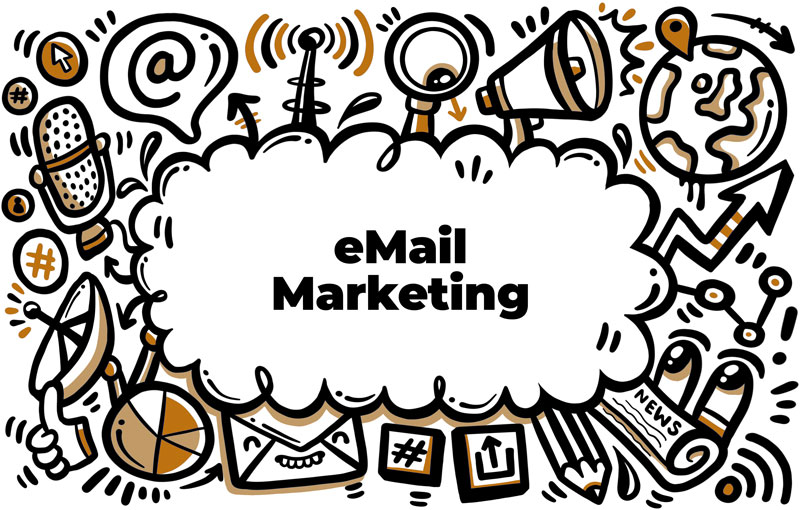In today’s digital age, email marketing is an essential tool for small businesses to reach out to their customers and build a loyal audience. While the benefits of email marketing are immense, it’s crucial for businesses to follow a set of rules and regulations to ensure they maintain customer trust and avoid potential legal issues. One such regulation is the General Data Protection Regulation (GDPR), which aims to protect the privacy of individuals in the European Union (EU) and the European Economic Area (EEA). In this article, we will explore the importance of GDPR compliance in email marketing for small businesses and how you can implement it in your marketing strategy.
Understanding GDPR and Its Relevance to Email Marketing
GDPR, which came into effect in May 2018, is a comprehensive set of data protection laws that govern the collection, processing, storage, and sharing of personal data of individuals within the EU and EEA. It applies to all businesses that deal with the personal data of EU and EEA residents, regardless of the company’s size or location.
Email marketing often involves the collection and processing of personal data, such as names, email addresses, and other identifying information. Consequently, GDPR directly impacts email marketing practices, requiring businesses to obtain explicit consent from individuals before sending them promotional emails, newsletters, or other marketing materials.
The Importance of GDPR Compliance for Small Businesses
There are several reasons why GDPR compliance in email marketing is essential for small businesses:
- Legal Consequences: Non-compliance with GDPR can result in hefty fines and penalties, potentially reaching up to €20 million or 4% of a company’s global annual turnover, whichever is higher. For small businesses, such fines can be devastating, making compliance a top priority.
- Customer Trust: In a world where data breaches and privacy concerns are increasingly prevalent, businesses that demonstrate their commitment to data privacy by adhering to GDPR guidelines can build trust with their customers. This, in turn, can lead to higher customer retention and brand loyalty.
- Competitive Advantage: GDPR compliance can serve as a competitive advantage for small businesses, as customers are more likely to engage with companies that respect their data privacy.
Implementing GDPR Compliance in Your Email Marketing Strategy
Here are some steps small businesses can take to ensure GDPR compliance in their email marketing efforts:
- Obtain Explicit Consent: Ensure that you obtain clear and explicit consent from individuals before sending them marketing emails. This can be achieved through double opt-in forms, where users confirm their subscription by clicking a link in a confirmation email.
- Privacy Policy: Have a transparent and easily accessible privacy policy on your website, explaining how you collect, process, and store personal data, and the rights of the individuals regarding their data.
- Unsubscribe Mechanism: Include an easy-to-find and straightforward unsubscribe mechanism in all your marketing emails, allowing individuals to opt-out of receiving future communications.
- Data Protection Officer: Appoint a Data Protection Officer (DPO) responsible for ensuring GDPR compliance within your organisation, if required by the regulations.
- Regular Reviews: Regularly review and update your email marketing practices, privacy policy, and data processing procedures to ensure ongoing compliance with GDPR.
The Benefits of GDPR Compliance in Email Marketing
In addition to avoiding legal consequences and building trust with customers, GDPR compliance can also offer several other benefits for small businesses in their email marketing efforts:
- Improved Email Deliverability: By obtaining explicit consent from subscribers and maintaining a clean email list, businesses can improve their email deliverability rates, ensuring that marketing messages reach the intended audience.
- Higher Engagement: As subscribers have willingly opted in to receive your emails, they are more likely to be genuinely interested in your content, resulting in higher open rates, click-through rates, and overall engagement.
- Enhanced Reputation: By demonstrating your commitment to data privacy and GDPR compliance, your business can enhance its reputation as a responsible and trustworthy organisation.
In conclusion, GDPR compliance in email marketing is crucial for small businesses to maintain customer privacy, avoid legal issues, and build trust. By implementing GDPR guidelines and focusing on providing valuable content to your subscribers, you can enhance your email marketing strategy, boost customer engagement, and ultimately, grow your business.



